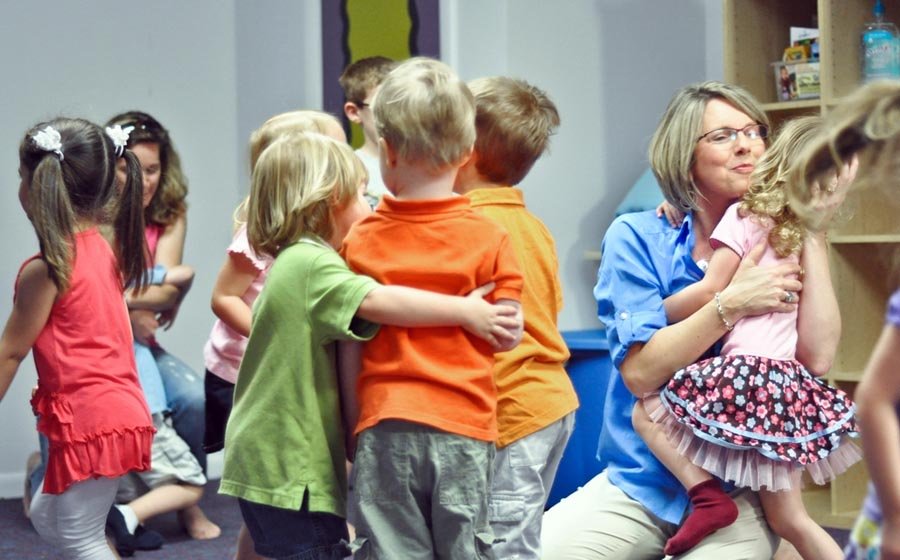As a parent, you want to give your child the best possible start in life. One of the most important ways you can do this is by supporting your child’s emotional and social development. Emotional and social development is critical for children’s overall well-being, and it lays the foundation for success in school and in life. In this article, we’ll explore some ways you can support your child’s emotional and social development, with a focus on the important role that child care can play.
Table of Contents
Foster Positive Relationships
Positive relationships with caring adults are essential for children’s emotional and social development. Research shows that children who have strong relationships with their caregivers and teachers are more likely to be happy, confident, and successful in school.
If your child is in child care, take the time to get to know their caregiver or teacher. Establish a positive relationship with them and communicate regularly about your child’s progress and needs. Ask questions about your child’s day and activities, and share information about your child’s interests and preferences. By working together, you can provide consistent and supportive care that promotes your child’s emotional and social development.
Encourage Play and Exploration
Play is an essential part of children’s emotional and social development. Through play, children learn to regulate their emotions, develop social skills, and build confidence and resilience.
If your child is in child care, look for a program that provides opportunities for play and exploration. A high-quality child care program will offer a variety of activities that support children’s physical, social, and emotional development. Look for programs that offer age-appropriate toys and materials, as well as outdoor play areas where children can run, jump, and explore.
Support Emotional Intelligence
Emotional intelligence refers to the ability to understand and regulate one’s own emotions and to recognize and respond to the emotions of others. Emotional intelligence is critical for building positive relationships, resolving conflicts, and coping with stress and adversity.
If your child is in child care, look for programs that promote emotional intelligence. A high-quality child care program will provide opportunities for children to learn about emotions and to practice emotional regulation. Look for programs that offer books and materials that explore emotions, as well as activities that encourage children to express their feelings in constructive ways.
Create a Safe and Nurturing Environment
A safe and nurturing environment is essential for children’s emotional and social development. Children need to feel secure and cared for in order to develop positive relationships, explore their environment, and learn new skills.
If your child is in child care, look for a program that creates a safe and nurturing environment. A high-quality child care program will provide a clean and organized space, as well as warm and responsive caregivers or teachers. Look for programs that follow health and safety guidelines, have appropriate ratios of caregivers to children, and offer a variety of activities that promote children’s physical, social, and emotional development.
Emphasize Positive Reinforcement
Positive reinforcement refers to the practice of rewarding positive behaviors in order to encourage their repetition. Positive reinforcement is an effective way to promote children’s emotional and social development, as it encourages children to engage in positive behaviors and reinforces their sense of competence and autonomy.
If your child is in child care, look for a program that emphasizes positive reinforcement. A high-quality child care program will provide praise and encouragement for positive behaviors, such as sharing, taking turns, and following rules. Look for programs that use positive reinforcement strategies, such as sticker charts or verbal praise, to encourage positive behaviors and build children’s confidence and self-esteem.
Child Care and Emotional and Social Development
Child care can play a crucial role in supporting children’s emotional and social development. However, not all child care programs are created equal. When choosing child care, it’s important to look for a program that provides high-quality care and promotes children’s emotional and social development.
High-quality child care programs will have experienced and qualified caregivers or teachers who are trained in child development and early childhood education. They will provide a safe and nurturing environment, offer age-appropriate activities and materials, and promote positive relationships and emotional intelligence.
In addition, high-quality child care programs will be responsive to the needs and interests of individual children and families. They will communicate regularly with parents and caregivers, and work together to support children’s emotional and social development both at home and in child care.
Conclusion
Supporting your child’s emotional and social development is one of the most important things you can do as a parent. By fostering positive relationships, encouraging play and exploration, supporting emotional intelligence, creating a safe and nurturing environment, and emphasizing positive reinforcement, you can help your child develop the social and emotional skills they need to succeed in school and in life.
If your child is in child care, be sure to choose a program that promotes emotional and social development and provides high-quality care. By working together with your child’s caregiver or teacher, you can provide consistent and supportive care that helps your child thrive emotionally and socially.
